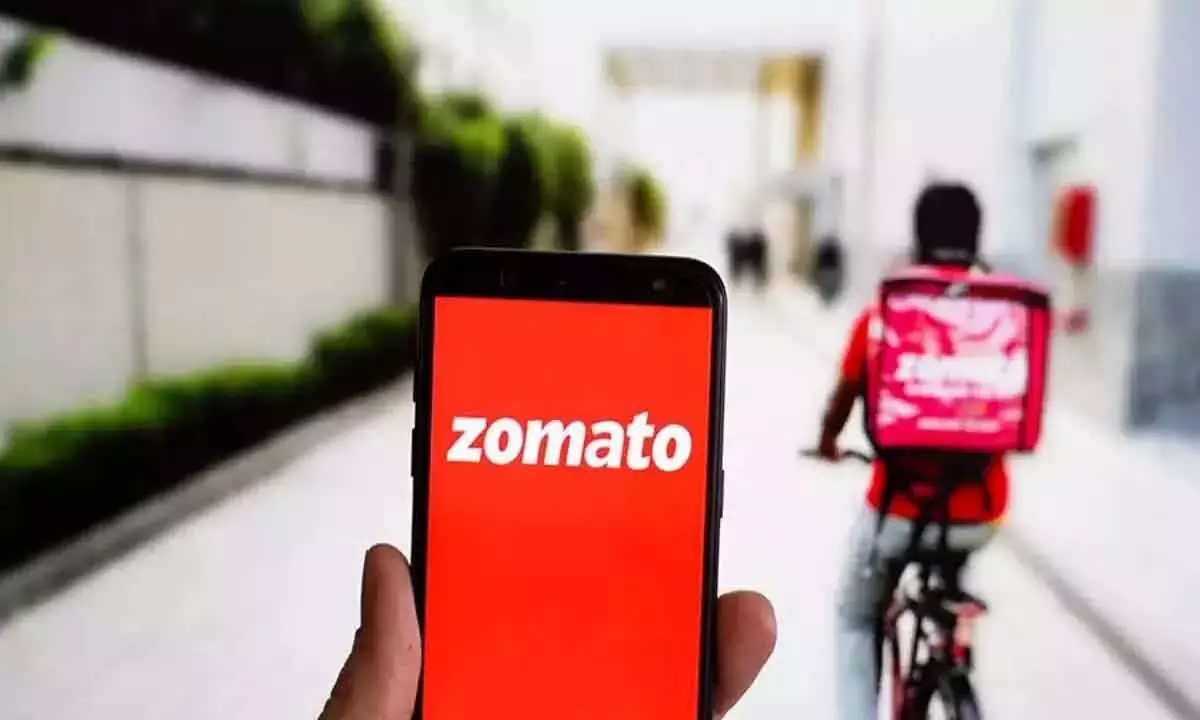How Zomato's market cap leaves Tech Mahindra, Dr. Reddy’s, and Vedanta in the dust?
The success of Zomato can be attributed to its innovative business model, diversified revenue strategies
image for illustrative purpose

Zomato, founded by Deepinder Goyal and Pankaj Chaddah, the concept emerged from Goyal's frustration with the traditional paper menu system in restaurants. Recognizing an opportunity to revolutionize food discovery and ordering, Goyal and Chaddah envisioned a digital platform that would streamline the process.
Within a mere nine months of its inception, Zomato swiftly ascended to become Delhi's premier restaurant directory, marking the beginning of its rapid expansion both domestically and internationally. In 2010, a significant rebranding took place, renaming the platform Zomato to steer clear of any legal entanglements with eBay.
Over the years, Zomato diversified its services, branching into food delivery, restaurant reservations, and sustainability initiatives like Hyperpure, which directly connects farmers with restaurants to ensure the freshest produce. Today, Zomato's operations are structured around three core pillars: Delivery, Dining Out, and Sustainability, a testament to its commitment to catering to a diverse array of consumer needs.
Zomato's business model revolves around providing comprehensive restaurant search services, collecting data on menus, and furnishing users with pertinent information. With an extensive database spanning numerous cities and countries, Zomato stands as the go-to platform for individuals seeking dining options across various cuisines. Leveraging mobile applications and its website, Zomato efficiently connects users with restaurants, offering convenience and accessibility.
Central to Zomato's success is its ability to accommodate customer preferences, whether they opt for dining out or ordering in. A mandatory rating system ensures transparency and accountability within the food industry, bolstering consumer trust. Furthermore, Zomato's platform has empowered restaurants by enhancing their visibility and expanding their reach to a broader audience.
Zomato's revenue model encompasses diverse streams, reflecting its multifaceted approach to monetization. Primary revenue sources include restaurant listings and advertising, food delivery commissions, subscription programs offering analytical tools, live events like Zomaland, white-label app development services, Zomato Kitchens infrastructure, and the premium subscription service Zomato Gold.
Ultimately, Zomato's value proposition lies in its ability to deliver value to both consumers and restaurants alike. For consumers, it provides a convenient platform for food discovery and ordering, granting access to a wide range of dining options. Meanwhile, Zomato facilitates business growth and customer engagement for restaurants by enhancing their visibility and reach.
The success of Zomato can be attributed to its innovative business model, diversified revenue strategies, and unwavering commitment to delivering value to stakeholders. Continuously evolving and adapting to changing market dynamics, Zomato has solidified its position as a global leader in the food tech industry, driven by a relentless pursuit of excellence.

